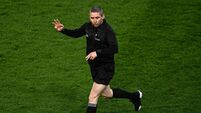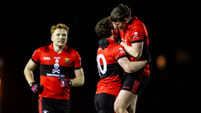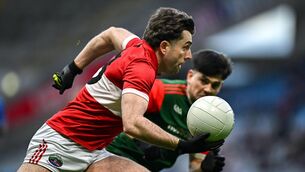Last quarter hoodoo still haunting Kerry
The Crossmolina man proved to be the unwilling catalyst for Kerry’s sprint for the tape in the third quarter when Colm Cooper’s speculative sideline ball plopped into his hands, spilled out through his fingers and onto the protruding toe of Darragh Ó Sé.
Before that, Kerry were slowly being manoeuvred back onto the ropes, with Mayo drawing level for the first time in 21 minutes thanks to Ciaran McDonald’s free three minutes earlier.














